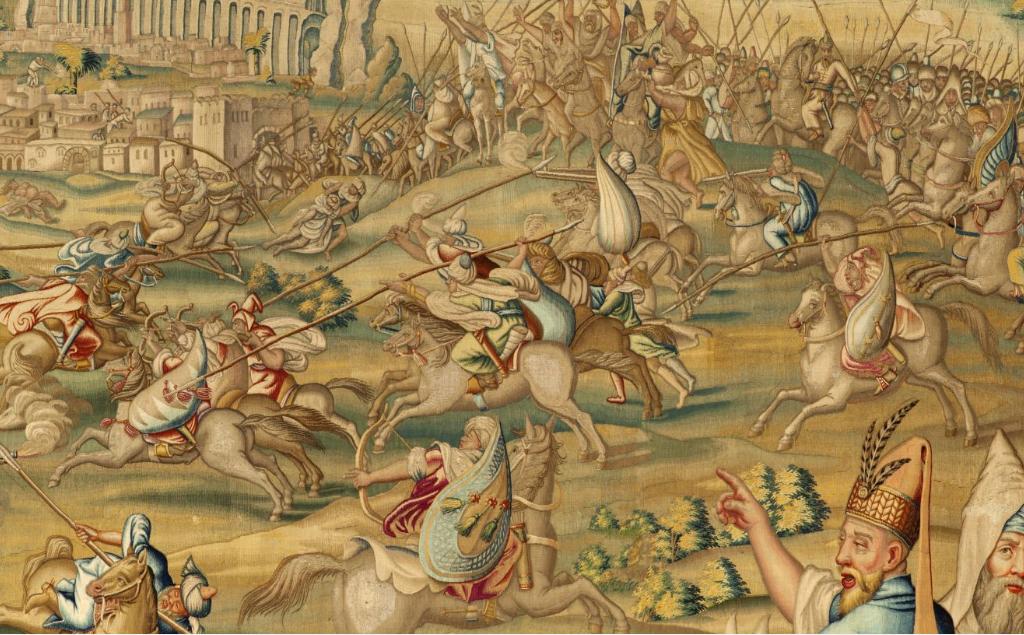Try Amazon Fresh

Amazon Audible Gift Memberships
In 1546 Charles V commissioned the Conquest of Tunis series in honour of his recapture of Tunis from the Turks in July 1535.
From the 1744 copies of the tapestries:
The Attack on La Goleta.
Detail of the Turkish and Moorish horsemen.

Other larger images:
Detail of the Hapsburg arquebusiers
Detail of the Moors, Turks & Hapsburg pikemen
Turkish and Moorish horsemen. Their long drooping spears are similar to those in the Códice De Trajes, 1547.
The Conquest of Tunis tapestries comprising of twelve monumental panels were the single most important tapestry set ever commissioned by the Habsburg court.
These enormous tapestries commemorate - like a woven panorama - the fame of the Habsburg dynasty, celebrating Emperor Charles V as defender of the Catholic faith,
and glorifying his victories over Turkish and Moorish forces at La Goleta and Tunis in 1535.
The cycle was used so much during successive reigns of Spanish monarchs, that in 1731 Philip V, the Bourbon king of Spain,
ordered from the royal tapestry works, the Real Fábrica de Tapices de Santa Bárbara,
in Madrid a less expensive set made of silk and wool to preserve Charles V’s original series, or editio princeps which by this date became known as the “old Tunis set”.
By 1744 these replicas of twelve tapestries was completed.
Back to the The Attack on La Goleta, from the 'Conquest of Tunis' tapestries.

